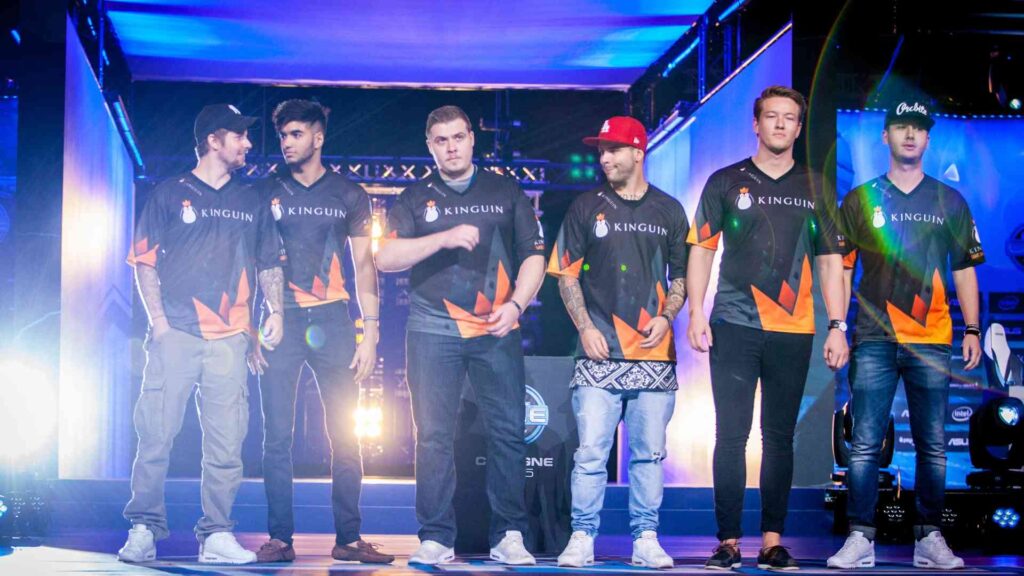With international quintets becoming the norm in tier-one Counter-Strike, it’s time to look back at Kinguin, the organization that pioneered the concept at the highest level.
Throughout 2022, the international CS:GO scene was shaken by a series of surprising transfers which radically transformed the identity of some of its most iconic brands. In January the last French representative in tier-one, Vitality, welcomed Danish stars Peter ‘dupreeh’ Rasmussen and Emil ‘Magisk’ Reif. Mere days later Joonas “â dotoâ ” Forss, the spiritual successor to an ENCE project that had brought Finland back to the top, was removed from the organization’s active roster. The biggest changes came in the summer, however, when a drought of talent in the Swedish scene led to the reveal of long-term international projects in NIP and fnatic.
These changes were only the culmination of a trend that intensified during the “COVID era”. When Astralis triumphed at the Berlin Major for a legendary fourth Major title, only two players in the top-eight teams did not communicate in their native language, Renegades’ Joakim ‘jkaem’ Myrbostad and NRG’s Tsvetelin ‘CeRq’ Dimitrov. At the same time, only three teams we would consider ‘international’ featured in the Top 20 of the HLTV rankings: FaZe, MOUZ and CR4ZY. On the contrary, both 2022 Majors featured two international quintets in their top eights, and the HLTV rankings present a radically different picture. G2, FaZe, MOUZ, fnatic, Vitality, OG, ENCE, NiP, Sprout and GamerLegion started 2023 inside the Top 20, making up 50% of the available spots.
To understand what led to the profound changes in the approach to professional CS at the basis of today’s international rosters we need to take a look back at 2015, when a group of stars and prospects assembled under the Kinguin banner, challenged misconceptions and defied the odds to emerge as a title contender.
Contents
The forerunners of multinational Counter-Strike
Before the Kinguin project was formed in May 2015, international quintets existed in a simpler form, linking together players from neighboring countries or who shared a native language across borders. In the 1.6 and CS:Source era, adding Ukrainian and Kazakh representatives to Russian teams or uniting Swedish, Danish and Norwegian players in Scandinavian mixes had already become customary. Another innovative trend of the era, albeit limited, was European imports crossing the Atlantic to elevate their North American counterparts, as shown by Tomi “lurppis” Kovanen’s move to EG in 2009.
In CS:GO’s infancy, the vast majority of international teams followed the paths traced during the last Source and 1.6 years. A proud outlier was mousesports, as the organization had already experimented with foreign duos in their German rosters in Source, who took part in DreamHack Winter 2012 fielding three British players and two Norwegians, including future fnatic member Lasse “stingeR” Midtstue. A year later, however, the first Major at DreamHack Winter 2013 provided a realistic picture of the scene, with the only international team in attendance being a Scandinavian Xapso quintet featuring Casper “cadiaN” Møller and Philip “aizy” Aistrup.
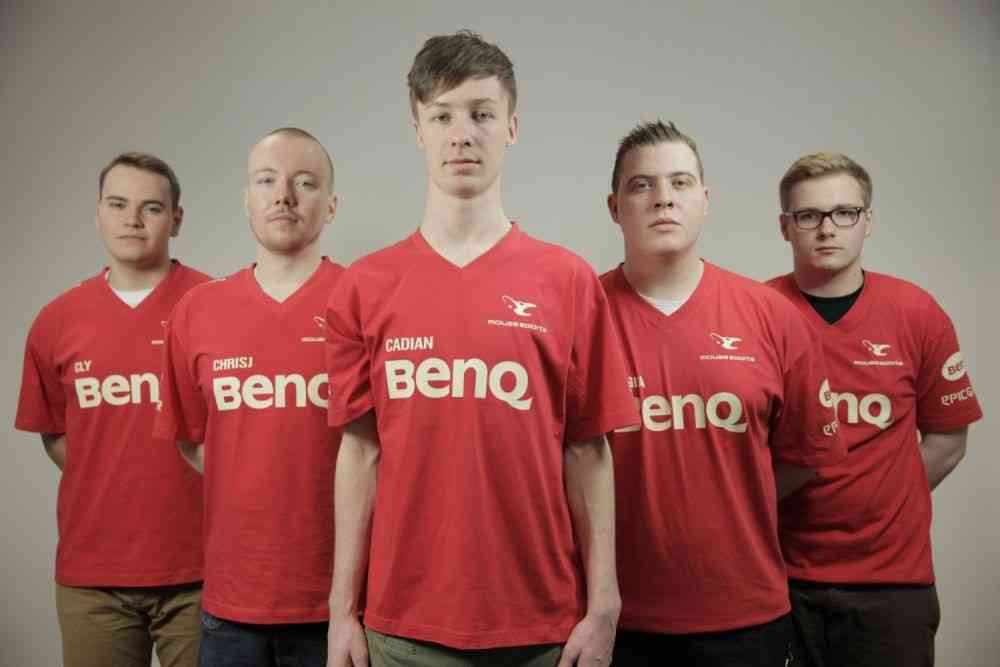 cadiaN and chrisJ were two of Mousesports’ early international pickups. Copyright: MOUZ.
cadiaN and chrisJ were two of Mousesports’ early international pickups. Copyright: MOUZ.Image: Mousesports
This was to be the norm: outside of Ladislav “GuardiaN” Kovács on NaVi and the Chris “chrisJ” de Jong – cadiaN duo on mousesports, every player communicated in a language they were completely fluent in at the three Majors in 2014, be it their mother tongue or a similar language. Before Kinguin’s rise, however, 2015 had already seen an important step for international teams, as NiP replaced Mikael ‘Maikelele’ Bill with Aleksi ‘allu’ Jalli, switching their primary language to English in pursuit of elite silverware. As much as allu’s time on the Swedish organization did not produce the hoped tournament victories, the move can be recognized as a key moment in the history of multinational quintets.
Controversy and hype: the birth of Kinguin
The man benched to make room for NiP’s international twist, Maikelele, would ironically be the driving force behind the Kinguin project. On April 23, the Swedish AWPer left LGB eSports after a single month on the roster, claiming ‘new big things going on in my career’. As fans would come to know, the sniper had discussed the possibility of building an international roster with Belgian star Adil ‘ScreaM’ Benrlitom, the sole survivor of an Epsilon quintet who received bans for match-fixing in February 2015.
The duo then linked up with former LGB and SK Gaming IGL Alexander “SKYTTEN” Carlsson, who had become a free agent after a stint on Team Orbit, and set their sights on one of the biggest revelations of 2014, Norwegian prospect HÃ¥vard “rain” Nygaard. Both had played alongside Maikelele on LGB, although on two different stints. The rumors around a fifth player further helped convey the ambitions of the first international superteam: Portuguese legend Ricardo “fox” Pacheco, who had almost single-handedly brought his country to international relevance since the 1.6 era.
Leaks and statements meant confusion surrounded the birth of the team, as its five members became public well before an organization was found, and even before negotiating a buyout for rain’s 22-month LGB contract. The hype grew exponentially as the quintet was heavily linked with SK Gaming, one of the franchise’s most iconic organizations, but eventually, the team would get swiped by a fast-moving Kinguin, marking the Hong Kong-based company’s first appearance in Counter-Strike.
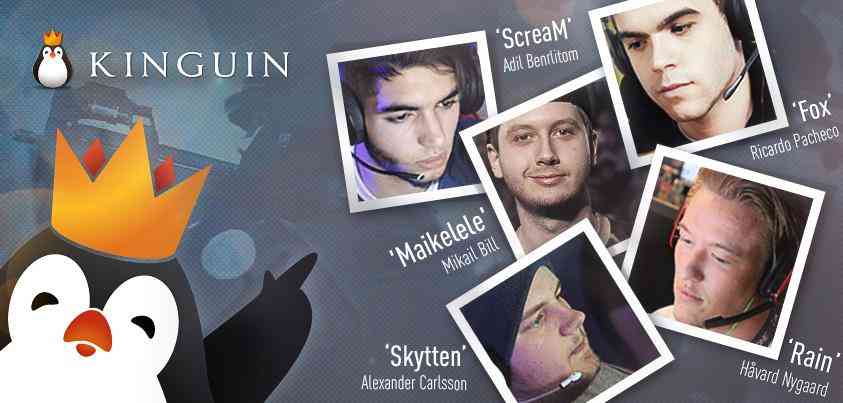 Kinguin’s announcement shocked fans and experts alike.
Kinguin’s announcement shocked fans and experts alike. Image: Kinguin
2015: G2.Kinguin’s false hope
The team started with disappointing results, with Kinguin crashing out of StarSeries XIII and DreamHack Open Summer 2015 in groups. A roster change would soon follow, as SKYTTEN missed the LAN qualifier for the infamous Gaming Paradise event, where Kinguin fielded Nikola ‘NiKo’ KovaÄ. The IGL was then removed from the active roster, but the organization was unable to come to an agreement with mousesports for the Bosnian star, eventually settling on former LGB man Dennis ‘dennis’ Edman. Leadership was transferred to coach Danniél “â dalitoâ ” Morales, as ScreaM revealed in an interview with HLTV.org but the Swede would only last a few days before being ousted due to a VAC-banned account.
The team quickly rebounded with dennis as its new captain, winning the European qualifier for the ESL One Cologne Major and the QuickShot Arena online cup. In Germany, the roster would fall in its opening game against the Brazilians of Luminosity but rebounded with a win over Team Immunity and contained Cloud9 to earn a spot in the Playoffs. The roster eventually fell at the hands of Finn ‘karrigan’ Andersen’s TSM in a one-sided quarterfinal match, but the early signs were promising. Kinguin then confirmed its rise by taking the title at Gaming Paradise, earning convincing wins over NaVi and Titan in the process.
The team’s success attracted a then little-known G2, who left the Polish scene to make the jump toward an international quintet in early September. G2 Kinguin, the Hong Kong company being the title sponsor, heavily remarked on the innovativeness of the project in their announcement, with CEO Carlos Rodriguez Santiago insisting that ‘fighting against language barriers and previous misconceptions from the Counter-Strike community […] will hopefully start a trend, and more international World Class teams will rise’.
However, as the again team failed to make playoffs at DreamHack Open London, ScreaM benched himself citing bad communication as the main reason. Like earlier in the year, the roster change was the catalyst for another step forward. G2, now without the Kinguin title, acquired Copenhagen Wolves rifler Joakim “jkaem” Myrbostad and came into the DreamHack Open Cluj-Napoca Major guns blazing. The team edged out mousesports to qualify for the playoffs after a loss to TSM and smashed massive favorites Virtus.pro 2-0 in the quarterfinals thanks to an inspired performance from the new recruit.
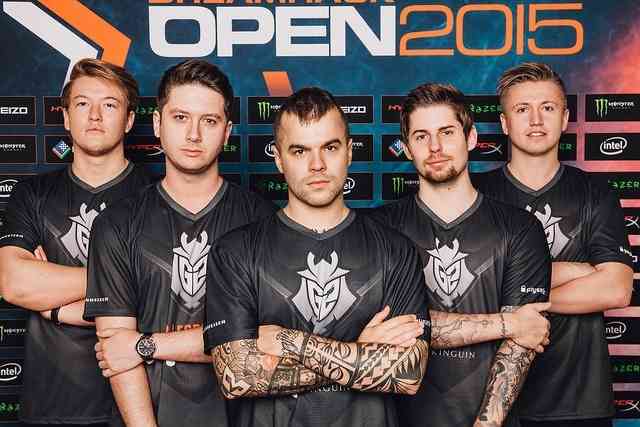 G2’s run at the Cluj-Napoca Major opened the doors for future international teams.
G2’s run at the Cluj-Napoca Major opened the doors for future international teams. Image: DreamHack | Sebastian Ekman
Facing a Kenny ‘kennyS’ Schrub-powered Envy in the semifinals, the international superteam struck first, stealing the opponent’s pick of Dust2 16-10. With the chance to close the game out on Inferno, G2 found themselves down 7-11 on the T side before an incredible 1v4 clutch by rain turned the game on his head. The samurais would save two map points to force overtime, before having three match points of their own after a perfect CT half on double overtime. The team would however collapse from 21-18 up, losing seven rounds in a row on Inferno and getting dismantled 7-16 on Cache. Envy would go on to win the Major convincingly, while Cluj-Napoca remained the highest point for the first international superteam.
The end of Kinguin’s project and what came next
The semi-final loss meant the start of a revolution inside the G2 roster, which saw Dennis transfer to fnatic. The IGL was replaced by a lurker in Philip ‘aizy’ Aistrup and the team struggled to make an impact. In January 2016, however, the quintet was acquired by FaZe for $700K, a world record fee at the time. The move created a rift between the players and G2, with the organization allegedly pushing for an ESL ban in case of a free transfer. Among the players themselves, Maikelele, fox, jkaem and aizy would depart the new team during the following twelve months, unable to meet the expectations put on the roster.
However, Kinguin’s spirit lived on in rain, who still features in FaZe’s main roster today. Seven years later, the young Norwegian is now a three-time HLTV Top-20 player and most importantly one of the members of the first international roster to win a Major title. FaZe’s triumph at the PGL Major in Antwerp, with rain as the MVP, thus finds its roots in the ambitiousness of the five players who chose to venture into unexplored territory to rise to the top.
After leaving FaZe, Maikelele appeared in a variety of Swedish and multi-national rosters over the following years, sporadically appearing in international events but never returning to his early-career level. The sniper was still a presence in the second tier until 2020 when he eventually lost his spot in GODSENT and retired from competitive play. Fox tried his hand in unsuccessful international rosters and even appeared as a stand-in for SK Gaming at the ELEAGUE Atlanta Major, falling in the semifinals for a second time. The AWPer and IGL returned to his home scene in 2018, helping a variety of rosters fight in the ever-competitive European lower tiers, and is still active at the age of 36.
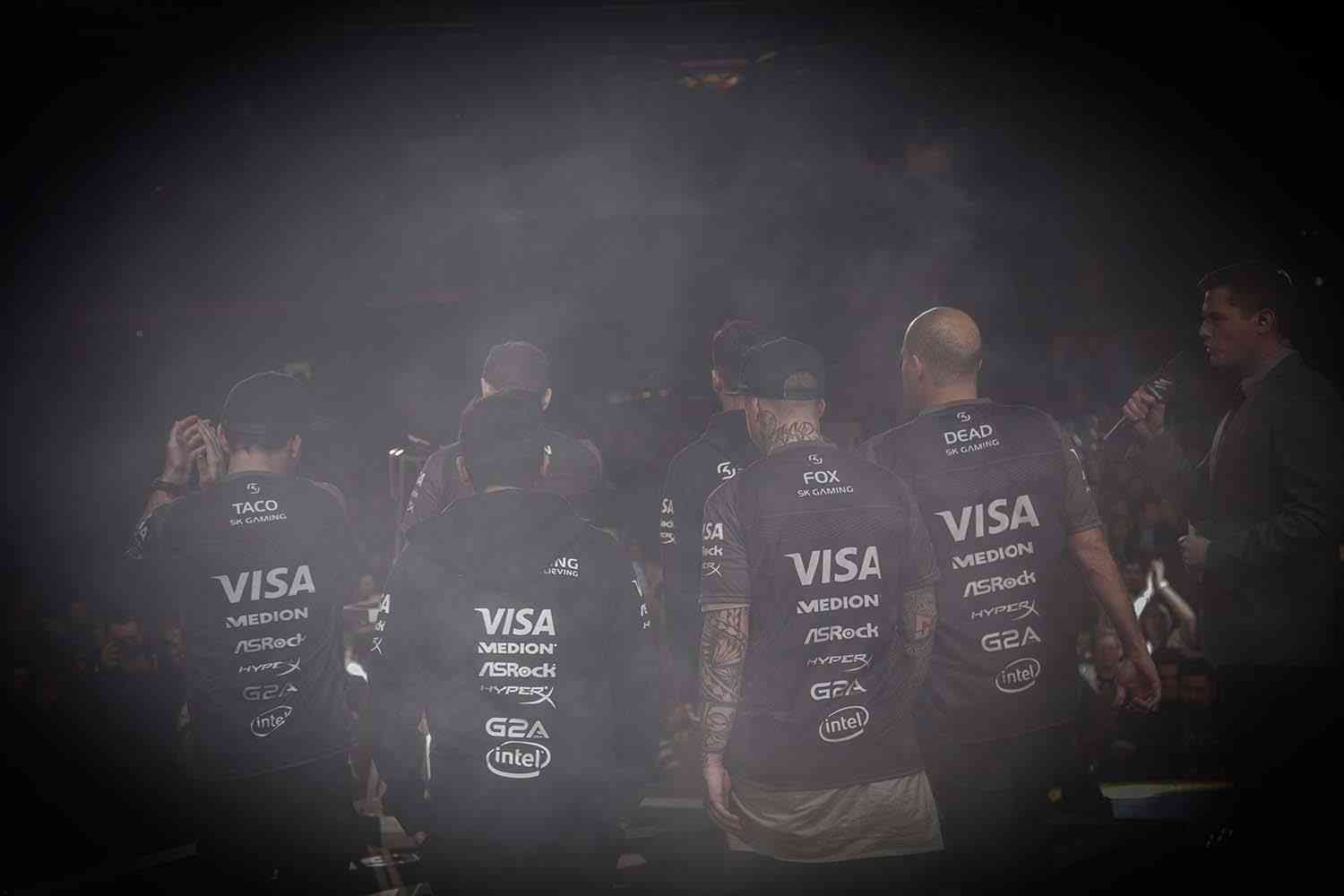 Fox did not look out of place in SK at the ELEAGUE Atlanta Major.
Fox did not look out of place in SK at the ELEAGUE Atlanta Major. Image: ELEAGUE
Jkaem wasn’t affected by the removal and became a key component of the best Australian roster in CS:GO history. Representing Renegades and 100Thieves, the quintet emerged as its region’s first high-level contender and reached the semifinals at the StarLadder Berlin Major, but jkaem too was unable to progress further. Now playing his trade for an international Apeks side, the Norwegian star is still holding his weight.
On the other hand, dennis represented all the elite Swedish rosters in fnatic, Godsent and NiP, even appearing in HLTV’s Top-20 list in 2016. As the new generation of talents trickled to the top, however, he eventually dropped to the lower tiers with GamerLegion and Apeks and is currently a free agent after his benching in November of 2021. Last but not least, SKYTTEN never recovered from his failed months in Kinguin, appearing in a variety of unsuccessful Swedish and international mixes before retiring in 2018.


